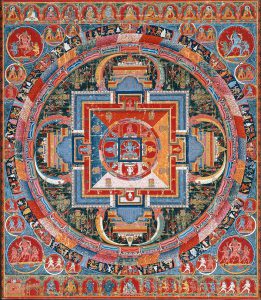Two Sides
 You have two sides. One side is conscious – it’s what you think about yourself and how you would define yourself to others. The other side is your unconscious – the part of you that is not easily known but has a big influence on how you think, feel, and act.
You have two sides. One side is conscious – it’s what you think about yourself and how you would define yourself to others. The other side is your unconscious – the part of you that is not easily known but has a big influence on how you think, feel, and act.
Both the conscious and unconscious sides are vitally important and when in balance, you feel that you are living in a right and true way. When unbalanced, you can feel conflicted, unhappy about your decisions or behaviors, or unsettled in relationships or work.
The unconscious can be given attention through empathetic examination of your motives, desires, habits and behaviors, how you relate to others, your wishes and concerns. You can also learn about your unconscious by noticing unexpected thoughts or feelings, or when you act or say something surprising, and also through dreams. Your dreams are extremely helpful in providing personal and creative symbols that can have deep meaning for you and provide guideposts in living your life.
Carl Jung
 Carl Jung was a Swiss psychologist. He studied and wrote extensively about the dynamics of consciousness and the unconscious. He determined that psychological development is a natural, unconscious process in all individuals; that the goal of life is to find expression and outlets for innate abilities and gifts. But Jung recognized that this process can become blocked by life’s circumstances, such as negative or traumatic experiences. He understood that when this occurs many problematic symptoms arise, and then conscious attention must be paid to this vital developmental process.
Carl Jung was a Swiss psychologist. He studied and wrote extensively about the dynamics of consciousness and the unconscious. He determined that psychological development is a natural, unconscious process in all individuals; that the goal of life is to find expression and outlets for innate abilities and gifts. But Jung recognized that this process can become blocked by life’s circumstances, such as negative or traumatic experiences. He understood that when this occurs many problematic symptoms arise, and then conscious attention must be paid to this vital developmental process.
Jung used the term individuation to designate this process of conscious attention to psychological development. An inner sense of direction can be experienced through this process. Decisions can then be made to live life in a purposeful, meaningful way. Individuation is very personal to each individual. It is unique to you. To individuate is to become aware of your true self and to learn how to live in a way that is in keeping with this true, inner self.
Your True Self
 Not only are you changed, but others in your immediate sphere are impacted as well. There is a ripple effect, like a pebble tossed into a pond. The more you engage in making decisions and behaving in ways that reflect your true nature, the more others will respond to you differently; they are changed as well. The process of individuation can be a difficult emotional process at times, but it is a uniquely individual way to find meaning, purpose, and a new and more encompassing attitude toward life.
Not only are you changed, but others in your immediate sphere are impacted as well. There is a ripple effect, like a pebble tossed into a pond. The more you engage in making decisions and behaving in ways that reflect your true nature, the more others will respond to you differently; they are changed as well. The process of individuation can be a difficult emotional process at times, but it is a uniquely individual way to find meaning, purpose, and a new and more encompassing attitude toward life.